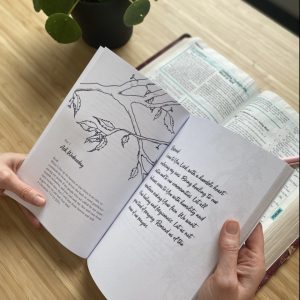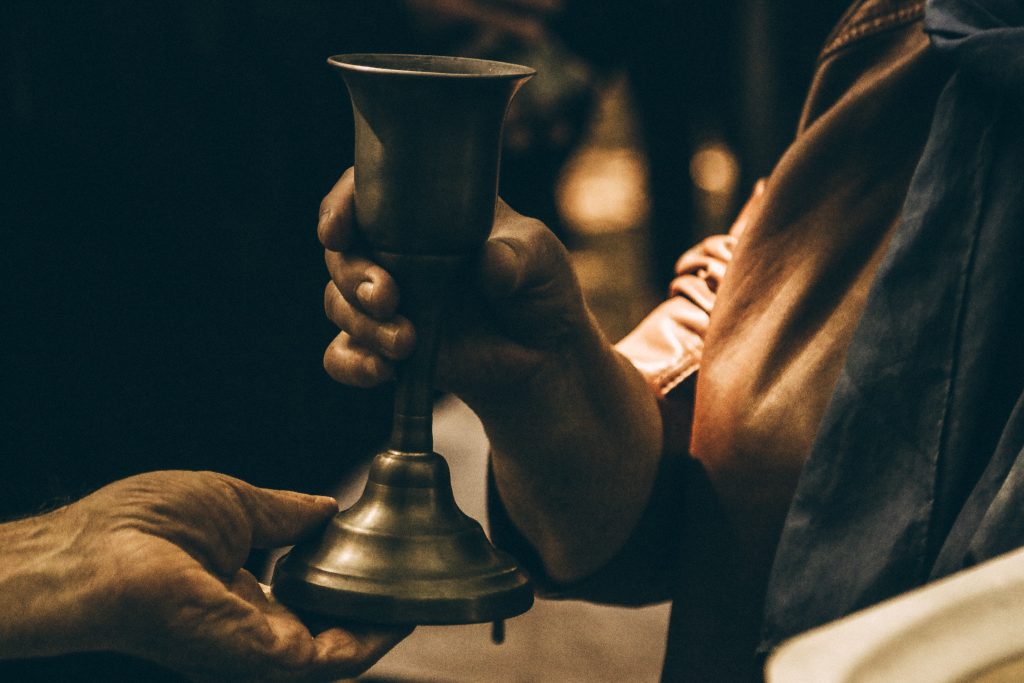
The season of Lent is just around the corner, and we want to be prepared. Christians around the world practice Lent as a way of drawing close to God and remembering Christ’s sacrifice in preparation of Easter. It’s not something we are required to do, but are invited to do. Below are some helpful insights, practical ideas, and more from author Sarah Bulkley about her book, He is Love: Daily Scripture and Prayer From Ash Wednesday to Easter Sunday (and Beyond).
More About Lent
Observing Lent is not prescribed in Scripture, but is part of a centuries old Christian calendar beginning and modeled in the Bible. Fasting, meditating on God’s Word, repentance, prayer and sacrifice are not American traditions, but disciplines that are an integral part of our walk with Christ. Access our recommended resources for practicing spiritual disciplines here and here.
- The word Lent comes from the Anglo-Saxon words lencten, which means Spring, and lenctentid, which can be translated as March – the month in which the bulk of the lenten season falls.
- Lent begins on Ash Wednesday (March 2 in 2022) and ends on Resurrection Sunday (with Palm Sunday, Holy Thursday, Good Friday, Silent Saturday between). While we refer to this season as 40 days of preparing our hearts and minds for Easter, Lent takes place over 47 calendar days. Sundays are traditionally considered days of rest and celebration rather than days of observance.
Ways to Observe Lent
Practicing Lent prepares us to celebrate the wonder and promise of Jesus’ resurrection on Easter Sunday. Search your heart and ask God to reveal ways that will help you draw close to Him this season and give yourself wholly to Jesus.
Here are some ideas to consider:
- Sacrifice – Fast or abstain from types of food, technology, social media and/or sources of entertainment. When you crave or miss the things you’ve sacrificed, reflect on Christ and His great sacrifice for us. By voluntarily carving away comforts, distractions, or conveniences, we make room to focus on God.
- Give – Live simply for the 47 days of Lent. Keep track of the money you’ve saved and donate it to a cause or person. Simple living allows more time and resources for others as we declutter and live intentionally. Consider serving somewhere on your own or alongside friends or family.
- Repent – Repentance is the act of turning to God and turning away from sin. Ask God to reveal sin and confess it to Him and a trusted friend or mentor. Seeking reconciliation with Christ and others is another way to celebrate our salvation through Christ’s death and resurrection.
- Remember – To remember during Lent means we reflect on God’s sacrifice for us and His gift of salvation through Jesus Christ. Keep a gratitude journal where you record things you are grateful to God for. Commit to writing in it daily over the 47 days and review it with a spirit of thanksgiving on Easter Sunday.
- Focus on Scripture and Prayer – Make Christ the center of your lenten season by adding rhythms of daily Bible reading and responsive prayer. Use He is Love: Daily Scripture and Prayer From Ash Wednesday to Easter Sunday (and Beyond) to reflect on foundational passages and respond in prayer. Use the pages in the back to begin writing your own personal prayers.
More About Our Lent Resource, “He is Love”
 The first 11 days of He is Love: Daily Scripture and Prayer From Ash Wednesday to Easter Sunday (and Beyond) focus on others and include prayers for our community, leaders and loved ones. The last 36 passages draw our attention toward God’s character and seek to help us grow a deeper and more personal relationship with Him.
The first 11 days of He is Love: Daily Scripture and Prayer From Ash Wednesday to Easter Sunday (and Beyond) focus on others and include prayers for our community, leaders and loved ones. The last 36 passages draw our attention toward God’s character and seek to help us grow a deeper and more personal relationship with Him.
At the end of the 47 Scriptures and prayers, there are 7 extra days of passages with space to write your own prayers. You are encouraged to spend time meditating on each one and then respond to God’s Word by writing a personal prayer to Him.
Interviews About He is Love With Author Sarah Bulkley
 Gain insight into the the passion and process behind He is Love as radio host Reggie Rogers of Power Jams talks to Sarah about her book!
Gain insight into the the passion and process behind He is Love as radio host Reggie Rogers of Power Jams talks to Sarah about her book!- Listen to Sarah and Lisa chat about Lent, taking risks, and He is Love in the latest from the Arise Online podcast.
Printable Scripture Cards
Cultivate a rhythm of reflection and gratitude with Scripture memorization cards created by artist Anna DeRoos. Each of these passages correlate with our He is Love: Daily Scripture and Prayer From Ash Wednesday to Easter Sunday (and Beyond) devotional and are a simple and beautiful way to incorporate the Word into your Lent journey this year. These 4×6 cards can be framed, posted on a refrigerator, tucked into your Bible nightstand, or mailed in a note to a friend. Try memorizing them on your own, with family, or alongside other women.
Above all, may this season of repentance and reflection yield sweet communion with Christ. And in the sacrifice and practice of Lent, remember, Easter is coming!
About the Contributors
 Sarah Bulkley
Sarah Bulkley
Sarah is a wife, dog mom and pediatric dental assistant. She loves spending her free time meditating on scripture, listening to old sermons, practicing yoga, and antique shopping. She fell in love with Jesus at a young age, but her passion for women’s ministries and Bible Study really began when she joined her first Bible Study group in 2010. She loves encouraging women to know and love the Bible.

Lisa Da Silva
Lisa is a wife, mom of two teenagers, and advocate for women to love God with their heart, soul and mind as they engage in responsible study of His Word. She writes, speaks, and teaches the Bible to anyone who will read or listen.
Lisa is a teacher by trade and passion, recovering striver, and lover of simplicity. She enjoys thrift store shopping and often has to convince people she’s an introvert. Just a loud one.
Loving Jesus and making Him known really is her everything.

Anna of She Letters Truth Co. – Creator of our Lent Scripture Memorization Cards
Anna is a visual artist and high school Senior living in the beautiful Pacific Northwest. She loves creating for God’s glory, and finds joy in all things pretty. You can find more of Anna’s printable scripture cards for Arise by checking out our Resources tab. Visit She Letters Truth Co. on Etsy to find more of Anna’s creations.



 Marnee Alfson is an EMDR trained trauma specialist in private practice in Vancouver, WA. Marnee received her training under the direction of leading author and developer of Story Informed Trauma Therapy (SITT), Byron Kehler, MS. She has worked with survivors of various traumas such as sexual and/or domestic assault, displacement, first responders, attachment in relationships, body image, life transitions and mood management.
Marnee Alfson is an EMDR trained trauma specialist in private practice in Vancouver, WA. Marnee received her training under the direction of leading author and developer of Story Informed Trauma Therapy (SITT), Byron Kehler, MS. She has worked with survivors of various traumas such as sexual and/or domestic assault, displacement, first responders, attachment in relationships, body image, life transitions and mood management. Lisa Da Silva is a wife, mom of two teenagers, and advocate for women to love God with their heart, soul and mind as they engage in responsible study of His Word. She writes, speaks, and teaches the Bible to anyone who will read or listen.
Lisa Da Silva is a wife, mom of two teenagers, and advocate for women to love God with their heart, soul and mind as they engage in responsible study of His Word. She writes, speaks, and teaches the Bible to anyone who will read or listen. About the Author:
About the Author: 
 About the Author: Maya DaSilva is a high school junior who just got her driver’s license but rarely remembers where the keys are.
About the Author: Maya DaSilva is a high school junior who just got her driver’s license but rarely remembers where the keys are.